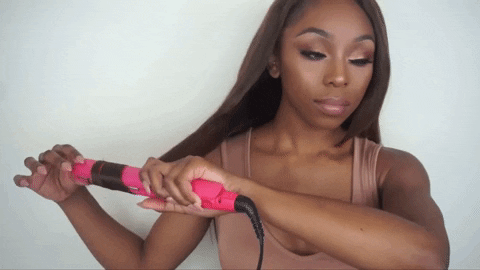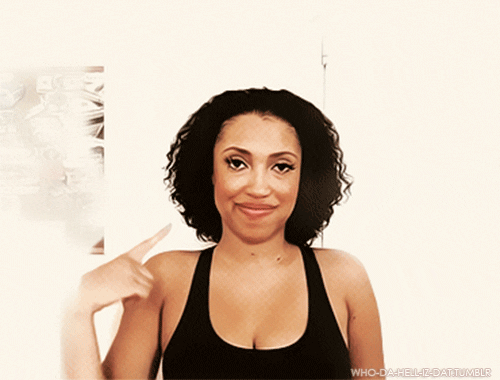Millennial Money Expert Tonya Rapley Says Bad Credit Kept Her From Living Her Best Life
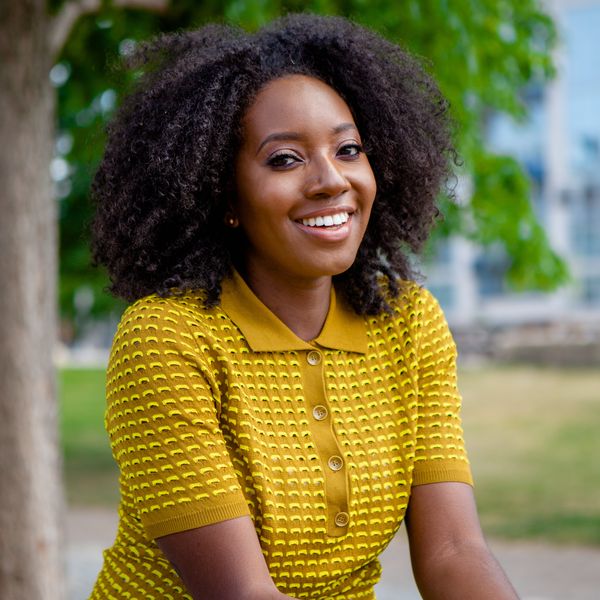
Tonya Rapley, founder of My Fab Finance, believes that everyone has a financial story. For some, their story may begin as early as childhood, understanding the value of weekly allowances or saving coins in their piggy banks. For others, post-grad adulthood is the first true awakening, as they come to navigate student loan debt and fluctuating credit scores. No matter the chapter you find yourself in, with the right tools and guidance, there's always an opportunity to turn a page and become the hero of your financial journey.
For Tonya, her story began with parents who provided a solid foundation that cultivated her work ethic and nurtured her drive, "I came from a middle class family, so there was a lot of stability there. But my parents wanted to make sure that my sister and I knew how to get our own." At 15, having her own meant juggling a part-time job, maintaining academic honor roll, while paying for school lunches and even her prom dress. "My parents required a lot out of us when it came to the things we wanted to do, but that also required us to learn how to budget at an early age."
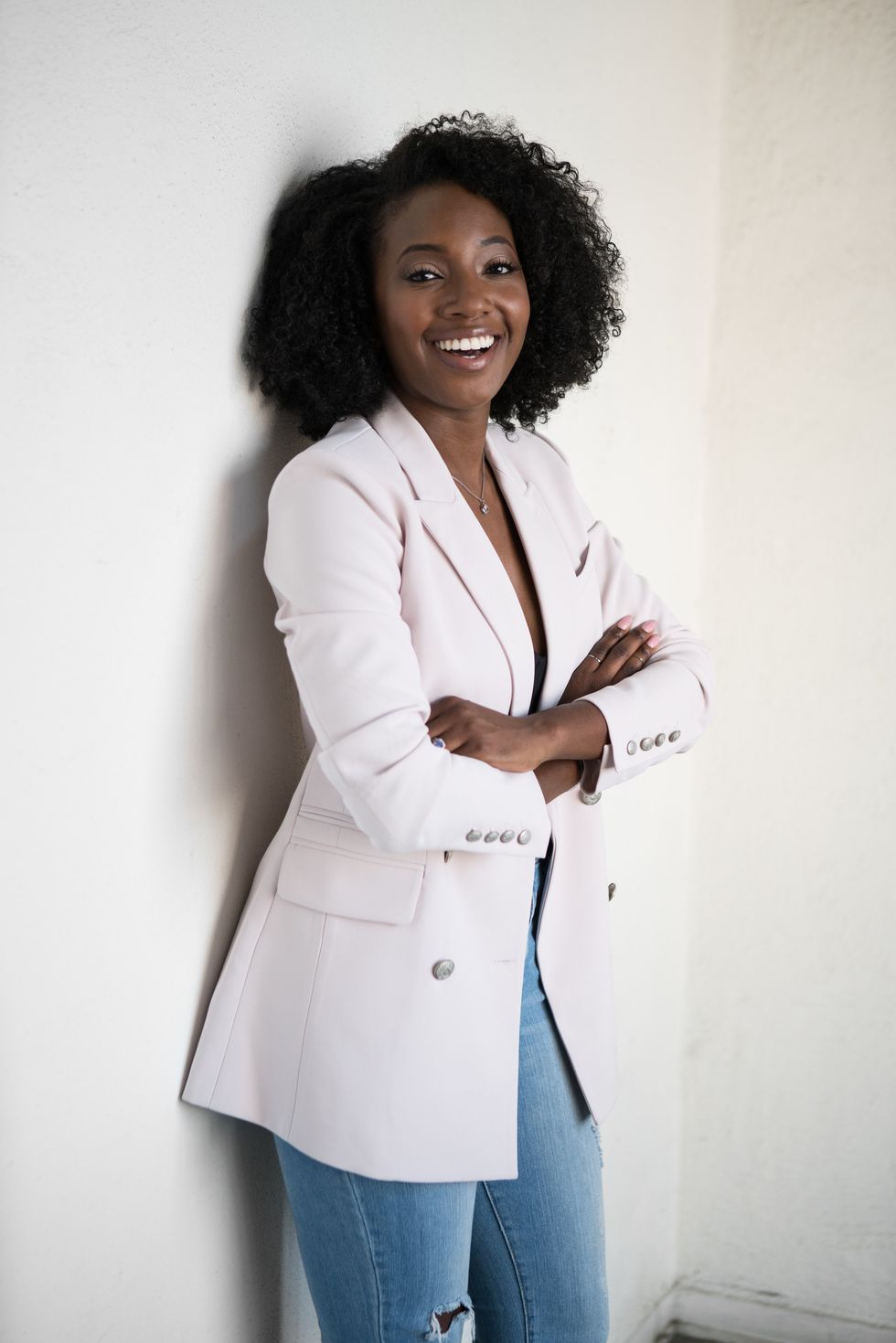
Courtesy of Tonya Rapley
As she grew into financial independence, Tonya always had a leveled relationship with her credit, still, she shares how her spending habits left her in a complicated financial situation, "I was using my credit to bridge the gap between my actual life and my ideal life, instead of understanding how to leverage credit and use it as a tool." After seeing just how much of an inconvenience it was to have a fair credit score, Tonya knew it was time for a change, "Having bad credit was keeping me from living my life as the adult I knew I wanted to be."
"I was using my credit to bridge the gap between my actual life and my ideal life. Instead of understanding how to leverage credit and use it as a tool."
Tonya's journey to correct her credit score led her to discover online message boards filled with people on the journey to reverse their financial missteps, "I started looking at what other people were doing and started to implement it in my own life." Learning from their insight allowed her to take her new found knowledge and impart it to her own community, thus creating, My Fab Finance.
Now, Tonya has reinvented My Fab Finance to be a full-scale, "holistic financial picture," providing millennials with financial education and support they need to become financially free and live an abundant life.
xoNecole: What was the inspiration behind starting My Fab Finance?
Tonya Rapley: When My Fab Finance started, we were focused helping people understand and improve their credit. Since then, it's more of a holistic financial picture, it's about how to put money aside for retirement, it's about understanding small business finances, and budgeting to help you achieve your financial goals. It has advanced to incorporate more priorities in people's financial lives, but I think it also served as accountability and a reminder. I think some people need that encouragement, so we're also "financial encouragers" - just letting people know that other people have done this, and you can do it too.
One thing I see you mention on your page is Scarcity vs. Abundance Mindset. In your own definition, how can we learn how to separate the two?
It goes into being mindful of it and calling it out when you see it. It's not like we deal with it once and we're over it, it's something you have to remind yourself of consistently and different circumstances can influence that. It's really about framing and being honest with yourself, are you adopting a scarcity mindset right now or an abundance mindset? And understand that a scarcity mindset is sometimes inherited, sometimes it's the collective culture you're a part of - the idea that everybody around you is struggling, so you don't see how you won't or when you do have thoughts of abundance, people try to bring you down. It happens. Be aware of it and switch this energy. Focus on all that is well instead of all that isn't. I say, "How am I going to become a catalyst for opportunity instead of just waiting for bad things to happen?
How are you learning to find a balance between motherhood, wife life, and entrepreneurship?
I am learning to ask for help. Prior to becoming a mother, I was like, "I can do it all by myself." I'm learning to ask for help because you need a village, you need rest to create and clarity to make things happen. I was feeling like, "Well, everyone struggled through this [stage of motherhood], so I have to struggle through it too." But no: utilize whatever resources you have available to you that will put you in the best position to do what you need to do. I think too often we pride ourselves on doing it without support instead of realizing that doesn't take away from your success. Lean on your support.
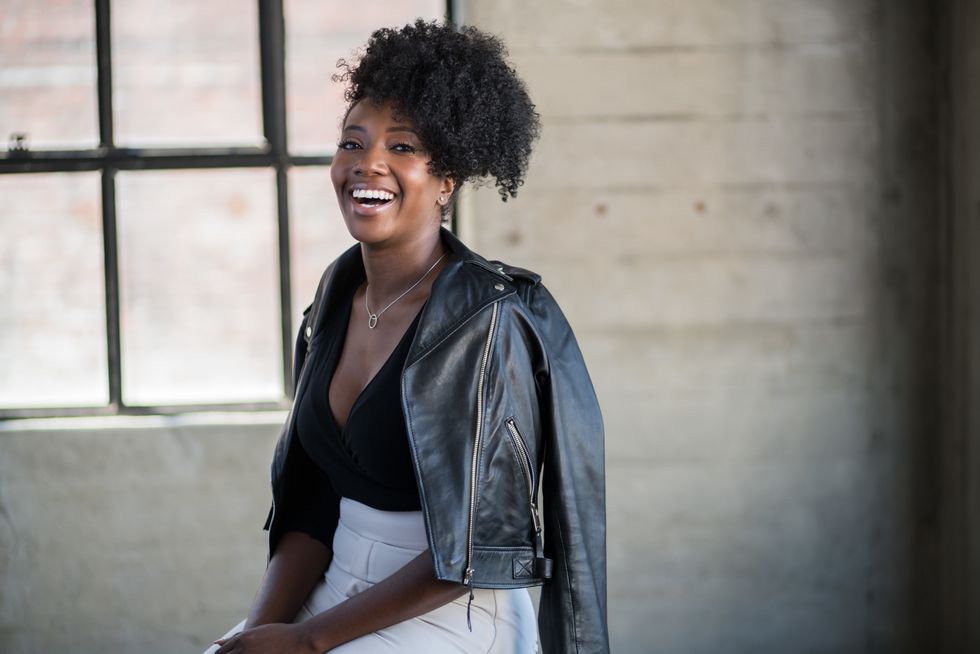
Courtesy of Tonya Rapley
Were there any habits that you picked up along your journey that you feel made the biggest shifts in your financial lifestyle?
Pausing was really helpful in achieving my financial goals. Pausing and asking myself questions like, "Why am I purchasing this? How will this help me accomplish my goals?" Also, being goal-oriented and being specific with my goals helped. Saying, "I want to be a millionaire," isn't not enough. Instead, we had to be specific about how much money we need to make in a day to hit our million-dollar target. Really being specific and gradual with my goals has been helpful in staying on track financially because I know on the micro level when I'm on track and when I'm not.
When it comes to having a positive relationship with money, what is one thing you may not have learned growing up that you look forward to teaching your son?
I look forward to teaching my son that he has options. When I was growing up, there was no other option for me but to go to college, so I look forward to encouraging him to be a creator and a problem-solver instead of a worker. When we look at people who are wealthy, it's because they have created solutions, so I want to teach him how to be solutions-oriented.
The biggest thing I want to give him is examples of what his reality can and should be. He has an education fund and a savings account that we contribute to regularly, so I know that we're doing what we need to do financially, but for me, the mindset piece is so much more powerful. I want to raise him as a proud, young Black man who knows he can do what he wants to do and that he has the resources to do it. And if things don't work out, it's not the end of the world for him. And I think so many people in our community are afraid to try because we don't have that leeway to fail.
What would your advice be to someone who may have shame associated with relationship to money, but wants to become a hero to their financial story?
Realize that shame does not serve you. Sometimes, it's not even ours, we can feel like we're failing at expectations that others have about us. Ask yourself, "Where are these feelings coming from?" I'm often motivated by asking myself, "What can I do to make me proud of myself?" I think pride counteracts shame. Give yourself more things to be proud about than to feel shame about. I think everyone experiences it, and that's OK, but it's about what we do with it that matters.
"Realize that shame does not serve you. Sometimes, it's not even ours, we can feel like we're failing at expectations that others have about us."
Tell us about your latest business endeavor, Club Loofah.
My current task at hand is to scale the Shopify business that I acquired, Club Loofah, and show people that you can actually buy an existing brand and scale that. You don't necessarily have to come up with the idea, you can buy someone else's idea, figure out where they came up short, grow it, and improve upon what they created. Sometimes we feel like we have to start from scratch, but when we look at the other side, they're not starting from scratch. How do we build on what other people have done and make it better? Black people are some of the most creative beings to walk this earth, so how do we lend that creativity so that we don't have to start from scratch and start over? We can just build on what's already established.
For more information on Tonya, follow her on Instagram and check out her services on, My Fab Finance.
Featured image courtesy of Tonya Rapley
- My Fab Finance - xoNecole: Women's Interest, Love, Wellness, Beauty ›
- How To Buy A House With Bad Credit - xoNecole: Women's Interest, Love, Wellness, Beauty ›
- The Authenticity Asset: An Interview With Entrepreneur Tonya Rapley ›
- How to Make Your Creative Passion Your Job with Tonya Rapley ... ›
- Tonya Rapley Gets Real About Money And Motherhood ›
- Mom+ Entrepreneur Atlanta, GA (@tonya.rapley) • Instagram photos ... ›
- Tonya Rapley | Black Millennial Mom & Entrepreneur ›
- My Fab Finance | Financial Help for Women ›
This Is How To Keep 'Holiday Season Stress' From Infecting Your Relationship
Hmph. Maybe it’s just me, but it seems like there is something really weird happening in the fall season air (because winter doesn’t officially begin until December 21) that cuddle season is in full swing while break-up season is as well. In fact, did you know that break-ups are so popular during the holiday season that December 11 is deemed Break-Up Day?
The reasons why relationships shift around this time vary; however, I did both roll my eyes and chuckle when I read that a very popular one is because it’s an easy way to get out of getting one’s significant other a Christmas present. SMDH.
Anyway, I personally think that the less shallow folks out here may contemplate calling things “quits” or they at least distance themselves a bit from their partner (and what I’m referring to is serious relationships) due to all of the stress and strain that oftentimes comes with the holidays whether it be financial, familial, due to their tight schedules or something else.
Listen, I would hate for you and your man to miss the fun and happiness of experiencing this time of year, all because you are so overwhelmed or irritated that you can’t really enjoy it. That’s why I have a few practical tips for how to avoid allowing the typical holiday season stress from INFECTING your relationship.
Manage Your Expectations
 Giphy
GiphyUnmanaged expectations. If there is a main reason why the holiday season tends to be so stress-filled for so many people, I’d bet good money that this is the cause. And when you’re in a long-term relationship, expectations can manifest themselves in all sorts of cryptic and/or unexpected ways. You might have relatives who assume that you are going to be with them for Thanksgiving or Christmas when you have other plans in mind. You might be thinking that you are going to spend one amount for presents while your man is thinking something totally different. When it comes to scheduling, your signals may be crossed.
And you know what? To all of these scenarios, this is where clear and consistent communication come in. Don’t assume anything. Don’t dictate anything either. From now until New Year’s, mutually decide to check in once a week, just to make sure that you are both on the same page as it relates to the holidays and what you both are thinking will come along with it. The less blindsided you both feel, the less stressed out you will be. Trust me on this.
Set (and Keep) a Budget
 Giphy
GiphyOkay, so I read that last year, 36 percent of Americans incurred some type of holiday-related debt. Hmph. Last year, there was still some sense of normalcy in this country, chile, so I can only imagine what finances are gonna look like over the next several weeks. That said, since I don’t know a lot of people who don’t find being broke stressful, make sure that you and your bae set a budget and then stick to it this year — no ifs, ands or buts.
Because really, y’all — it doesn’t make sense to deplete savings and/or max out credit cards for a few days of giggles only to be damn near losing your mind because you don’t know how to make ends meet come Dr. Martin Luther King, Jr. Day.
And by the way, this tip doesn’t just speak to things like food and gifts; I also mean travel. If it doesn’t make a ton of sense (or cents) to be all over the place this year — DON’T BE.
Keep Matthew 5:37 at the Forefront
 Giphy
GiphyIf off the top of your head, you don’t know what Matthew 5:37 says, no worries, here ya go: “But let your ‘Yes’ be ‘Yes,’ and your ‘No,’ ‘No.’ For whatever is more than these is from the evil one.” That verse right there? Oh, it’s a boundaries lifesaver! I say that because do you see “maybe” or “I’ll think about it” in there? Nope. LOL. It says that you should tell people “yes” or “no” and leave it at that — and that complements Anne Lamott’s quote, “’No’ is a complete sentence” impeccably well. Yeah, you’ve got to remember that anything beyond a yes or no to a request is privileged information; you don’t owe anyone details or an explanation.
Besides, if you are really honest with yourself, when someone asks you something and you give a “Umm, let me think about it” kind of reply, more times than not, you already know what your answer is going to be — so why not let you both off of the hook? Give your response. Commit to that. And let everyone (including yourself) get on with their lives and schedules.
I promise you that when it comes to those holiday parties, you are pissing more folks off by not RSVP’ing or doing so and not showing up than just saying, “Thank you but not this year” off the rip.
Remember That Your Personal Space Is Privilege Not a Right
 Giphy
GiphyA friend of mine recently bought a new house and invited me over to come see it. He’s a single man with no children, so as I was taking in all of the space that he had, especially as I walked through his finished basement, I joked about relatives coming to live with him. “Hell no” and “absolutely not” were pretty much his immediate responses as he went on to say that some folks even had the nerve to be offended when he told them that he had no intentions on taking DNA in.
Ain’t it wild how people think that your stuff is their right? And yes, that brings me to my next point. Your home is your sanctuary space. If you want to host folks this year — cool. If not, ALSO COOL. Please don’t let folks (family included) guilt you into how they want you to act or even into what they would do if the shoe was on the other foot. You are not them — and as one of my favorite quotes states, “If two people were exactly alike, one of them would be unnecessary.” (A man by the name Larry Dixon said that.)
Hell, my friends? They know that I am good for sending them random things that they need or even want all throughout the year. Coming over to hang out at my pace, though. Uh-uh. Chalk it up to being a card-carrying member of the ambivert club yet I like keeping my living space personal — and I sleep like a baby, each and every night, for feeling that way.
Always remember that your space, your time, your resources, your energy and shoot, yourself period (including your relationship), are all things that are your own. You get to choose how, when and why you want to share them. The holiday season is certainly no exception.
Cultivate Some “You Two Only” Traditions
 Giphy
GiphyIt’s not uncommon for some couples to hit me up after the holiday season to “detox.” Sometimes it’s due to the financial drama (and sometimes trauma) that they experienced. Sometimes it’s because they allowed their relatives (especially in-laws) to get more into their personal business than they should’ve. More than anything, though, it tends to be because they didn’t get enough quality time together and so ended up feeling “disconnected.”
Please don’t let that happen. Listen, I’m not even a holidays kind of woman and yet, I will absolutely sit myself down with some hot chocolate and chocolate chip cookies to enjoy a Hallmark holiday film or two. Aside from the fact that most of them are lighthearted and sweet, I also like that they usually focus on couples loving on each other amidst all of the holiday beauty and ambiance — which is something that all couples should set aside some time to do.
Maybe it’s a vacation. Maybe it’s a staycation. Or maybe it’s my personal favorite, A SEXCATION. Whether it’s for a few days, the weekend or even overnight — don’t you let the holidays go by without setting aside time for you and your man to celebrate one another. Don’t you dare (check out “Are You Ready To Have Some Very Merry 'Christmas Sex'?”).
GET. SOME. REST.
 Giphy
GiphyI once read that 8 out of 10 people get stressed out over the holidays and 3 out of 10 lose sleep during to it — and when you’re stress-filled and sleep-deprived, that can absolutely lead to hypersensitivity, making mountains out of molehills and even not being in the mood for sex.
Your relationship can’t afford to go through any of this, so definitely make sure to prioritize rest. I don’t care how unrealistic it might seem during this time, sleep should never be seen as a luxury; it will always and forever be a great necessity.
That said, try to get no less than six hours of shut-eye in (check out “6 Fascinating Ways Sex And Sleep Definitely Go Hand In Hand”) and even ask your bae to take a nap with you sometimes (check out “Wanna Have Some Next-Level Sex? Take A Nap, Sis.”). Not only will sleep help to restore your mind, body and spirit but, when it’s with your partner, it’s an act of intimacy that can make you both feel super connected, even in the midst of what might feel like chaos.
___
Holiday season stress is real. Still, never give it the permission or power to throw your relationship off. Put you and your man first and let the holidays be what they are gonna be, chile.
Let’s make things inbox official! Sign up for the xoNecole newsletter for love, wellness, career, and exclusive content delivered straight to your inbox.
Featured image by Shutterstock
It’s probably been over the past 2-3 years that I’ve become hyper-focused when it comes to applying certain chemical exfoliants known as acids to my skin. Personally, I’ve come to really appreciate ones like mandelic acid and hyaluronic acid because they have a way of softening my skin, brightening it up and really evening out my complexion overall.
In fact, on my skin, they have been so effective that they have caused me to wonder what would happen if I applied some of them to my hair too — and boy, was it an experiment that paid off big time!
If, while on your continual journey to get the best out of your own tresses, you’d like to learn how to get them healthier than it’s ever been, I’ve got seven acids that are typically known for skin use that can be just as beneficial to your hair as well.
1. Salicylic Acid
When it comes to your skin, salicylic acid is beta-hydroxy acid that is great for your skin if you’re looking for something that will exfoliate it, clear out your pores and dissolve dead skin cells. In fact, this is why it’s an acid that is quite popular when it comes to treating acne.
Your hair will enjoy salicylic acid because, if you’re looking to remove product build-up, you want to soothe an itchy or irritated scalp or you’ve got some dandruff flakes that are totally driving you up the wall, salicylic acid has the ability to treat all of this. Either purchasing a shampoo that contains this ingredient or adding it to your favorite scalp scrub is probably the most effective way to get the most out of it.
Just make sure that if your scalp is sensitive or dry that you approach with caution. In these instances, it could end up irritating your scalp more than helping it out, so use a very little bit in the beginning to make sure that it vibes with you.
2. Lactic Acid
Lactic acid is an alpha hydroxy acid that can help to even out your skin tone as well as slow down the signs of aging. The properties in it help to do this by reducing hyperpigmentation and boosting collagen production in your skin as well as keeping it hydrated.
Why is it great for your locks? For one thing, lactic acid is considered to be a humectant. This means that it pulls water from the air so that your hair is able to remain moisturized.
Another thing that makes it a winner is the fact that lactic acid breaks down dead skin cells on your scalp (so that your hair follicles are able to flourish), it can help to soften and detangle your hair (making it a helpful addition on your wash days) and it also helps to protect your tresses from heat styling tools and UV damage. Applying a hair rinse that’s made up of part lactic acid and part water can work wonderfully (so long as you apply it once a month, tops; more than that might be too “intense” for your hair strands).
3. Glycolic Acid
Glycolic acid is a water-soluble alpha hydroxy acid that is actually made from sugar. Your skin will adore it because it smooths the appearance of fine lines and wrinkles, improves the texture of your skin, gently exfoliates, clears your pores and brightens up your complexion overall.
The reasons why you should consider this acid for your hair is because it helps to keep your scalp youthful (and yes, there is such a thing; check out “Your Scalp Ages Six Times Faster Than Your Face. Why It Matters.”), removes excess sebum (that could be clogging up your hair follicles) and it helps to keep your hair moisturized. Your best bet here is to make it a part of your pre-shampooing ritual.
4. Succinic Acid
Succinic acid is an acid that is made from sugar cane and contains antimicrobial and anti-inflammatory properties. Although it doesn’t exactly exfoliate (like many of these other acids do), it can still be beneficial to your skin when it comes to reducing the kind of irritation that is associated with eczema, decreasing the bacteria that leads to breakouts and keeping your skin pretty hydrated.
As far as your hair goes, this is an acid that is worth trying out because it helps to balance the sebum that is on your scalp, remove dead skin and product build-up that can irritate your scalp and clog your hair follicles and, succinic acid is also beneficial when it comes to reducing dandruff and helping to prevent hair loss. Most people tend to apply this as a serum.
5. Hyaluronic Acid
I’ve officially sung the praises of hyaluronic acid on this platform before. One example is via the article, “Why Your Skin, Hair, And Nails Need Hyaluronic Acid Like...Yesterday.” On the skin tip, hyaluronic acid is great because it deeply hydrates your skin, contains anti-aging properties and can even bring relief to vaginal (including vulvar) dryness.
Your hair will adore this particular acid because it aids moisture to it (including your hair follicles), will help to improve your hair’s texture and it also soothes scalp dryness, nurtures the cuticles of your tresses and decreases frizz. Using a serum rich in this acid as a pre-poo or as a leave-in conditioner is recommended.
6. Azelaic Acid
If you’ve never heard of azelaic acid before, this is your lucky day. It’s a dicarboxylic acid that, when it comes to skincare (and hair care) products, is usually synthetic. Anyway, if you are looking for a way to reduce inflammation, even skin tone after a breakout or if you want to use an exfoliant that will improve the texture of your skin overtime, you might want to give this acid a shot.
This one makes the list as far as your hair is concerned because, if achieving more inches is your current focus, azelaic acid might come in handy. That’s because it is able to strengthen your hair, thicken your strands and also stimulate hair growth from within your hair follicles.
7. Glutamic Acid
Glutamic acid is actually a type of amino acid. Skin-wise, it’s great for deeply hydrating your skin as well as protecting it from pollutants and damaging UV rays. Also, if you’re looking for an acid that treats skin dryness or “tightness,” this could be the answer to your prayers.
Since glutamic acid is also considered to be a humectant, it’s another acid that can moisturize your hair. As a result, it can decrease breakage while helping your hair to feel smooth and look shiny.
BONUS: Amino Acids
Speaking of amino acids and hair, please try to keep some amino acids in your diet at all times. The reason why is because, since your hair is made up of mostly protein (keratin, to be exact), amino acids are pretty darn effective when it comes to helping you to maintain the overall health and well-being of your hair.
Ones to prioritize include proline (it boosts collagen so that your hair strands can maintain flexibility); arginine (it increases blood flow to your hair follicles so that they can receive the nutrients that they need); cysteine (it helps to keep your hair follicles healthy); alanine (it helps your system to produce more collagen), and isoleucine (it strengthens the tissues that help to make up your hair strands). All of these are available in supplement form or you can use Google to see which foods contain them.
___
Although it might initially seem odd to apply acid to your hair, as you can see, certain ones will work miracles for it. So, test them out to see which one tickles your fancy.
Hell, since they work for your skin as well — it’s a two-for-one deal that is worth every penny!
Let’s make things inbox official! Sign up for the xoNecole newsletter for love, wellness, career, and exclusive content delivered straight to your inbox.
Featured image by Shutterstock












